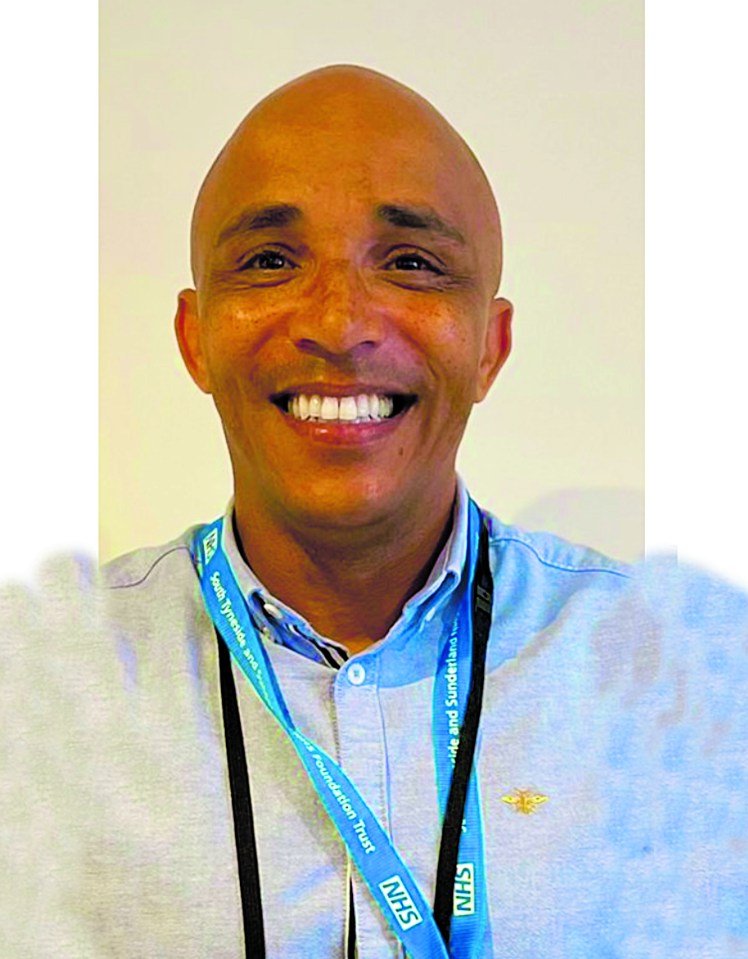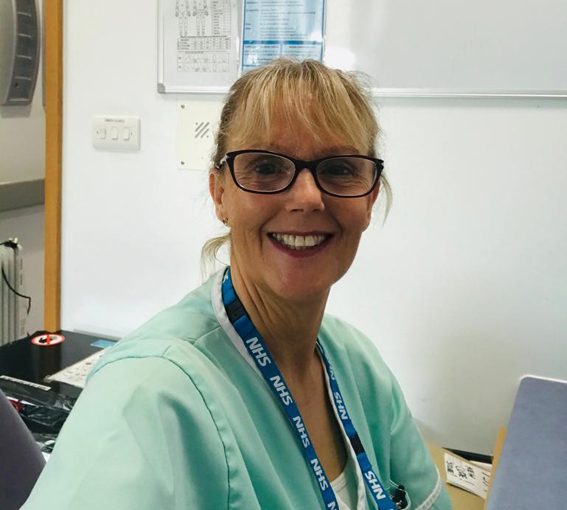Not only does a job with the NHS provide meaningful work, but a whole host of other benefits too

Since the NHS was founded in 1948, it has been an integral part of all of our lives. But as well as a wonderful health system, it’s a fantastic place to work: and the NHS is recruiting the next generation of inspirational staff.
Working in the NHS doesn’t just give you the opportunity to do something meaningful that makes a difference to people’s lives – it offers a diverse range of jobs, with a whole host of different ways to qualify, train and develop for professional and care roles.
And there are real benefits, too. New salaries across the NHS mean the job is rewarding in both senses. And the NHS’ pension scheme continues to be generous, with the NHS contributing the equivalent of an extra 20.6 per cent of your salary alongside. There may be opportunities to earn additional payments for working on-call, overtime, or unsocial hours.
A chance to develop skills
Nothing beats the feeling of making a difference to someone’s life. In more than 350 exciting, varied and rewarding roles across the NHS, there’s the chance to develop real skills as part of a unique team.
There are plenty of ways into the NHS, but common ones are direct entry into healthcare support roles, which don’t require academic qualifications, and for those going through degree-level training, like nursing; allied health professionals are also a key part of the service, too.
Healthcare support workers -who don’t require degree courses – are able to develop within their roles, serving as key parts of the health service, delivering vital care to people who need it.
And for those going through degree-level training like those wanting to become nurses, there are now financial support packages available too. Since September 2020, student nurses, midwives and allied health professionals can claim for at least £5,000 per academic year and further funding of up to £3,000 per year for some students. And you won’t have to pay a penny back.
A varied career
No job in the NHS is the same, and no two days are alike – that’s why so many NHS staff talk about the rewarding, varied nature of
a role within the health service. In nursing, for instance, even newly qualified staff are able to choose what role to do – perhaps helping people overcome mental health barriers or nursing newborns, or supporting people with learning disabilities or saving lives in A&E.
For those going into healthcare support roles, there are also varied opportunities – allowing you to work in hospital, GP practices, people’s own homes or out in the community. For those with the right skills and core values there are pathways to gain professional qualifications as a healthcare professional.
Whatever role works for you within the NHS, you’ll have a supportive employer that understands its staff and supports your growth and development – and one that values your work with stability, security and generous benefits.
There are hundreds of roles within the NHS waiting for the right person – and it could well be you. Combine a rewarding, meaningful career with a generous package.
Search ‘NHS Careers’ to find out more.
ADRIAN ANIM – Community Learning Disability Nurse

“I worked as a painter and decorator in London for 20 years, but when I fractured a vertebrae in my neck I moved back to the north east. Back home, I was doing decorating jobs in homes of people with learning disabilities. I felt so happy, so calm and so inspired by chatting to these people.
Former painter and decorator Adrian Anim, 52, from Newcastle, was 40 when he found his passion for helping others and is now a community learning disability nurse.
“I worked as a painter and decorator in London for 20 years, but when I fractured a vertebrae in my neck I moved back to the north east. Back home, I was doing decorating jobs in homes of people with learning disabilities. I felt so happy, so calm and so inspired by chatting to these people.
“The staff noticed how well I got on with the residents, so they asked me if I’d work there. And I said I’d love to. My first job was support worker and I was so happy and couldn’t wait for my shifts. One day I was chatting to a district nurse who saw how I’d helped a service user to communicate and she asked me if I’d ever thought about a career in nursing. I’d never even considered it, but it planted a seed and I started to look into what I needed to do to become a nurse. Initially, I didn’t think it would be an option for me because I really struggled at school and left with no qualifications.
“But the seed was still there and I went on to do an NVQ in health and social care and applied to Northumbria University to study registered nursing for learning disabilities. “I know it’s an old cliché, but no two days are ever the same. Sometimes the job is really challenging, but I’m well supported by working in a team. We all have our ups and downs, but we always focus on the end goal, which is improving people’s quality of life.
I’ve never felt so secure in a job – I love it and I’m passionate about what I do.”
pAULINE TEAGUE – A healthcare assistant

After more than 35 years I still love the work. When someone comes in the door in pain and I can help fix them, it’s an amazing feeling.
“I was a single parent and unemployed in 1986. I’d always wanted to be a nurse, but had cold feet over the training. Back then my mum’s response had been: ‘Don’t worry, you’ll be married with children!’ Let’s say, it wasn’t that encouraging. I remember first applying as if it were yesterday. I wasn’t confident of my academic ability, but was told about this role as a nursing auxiliary. I got in touch with the local hospital in Bourton-on-the-Water, saw the sister, and that was it. I was able to start straightaway, and the extra money as a single mum was great. When after a year I was struggling to find childcare I was also able to change my hours.
After more than 35 years I still love the work. When someone comes in the door in pain and I can help fix them, it’s an amazing feeling.
Then there’s the physio side and motivating people to take those first steps across the ward in rehab. I also take a lot from working in palliative care, to hold a hand or provide a calm voice that can help put patients at ease.
My husband might find it hard to believe, but it all comes down to caring – and it’s difficult to put into words.
As a health care assistant we undertake mandatory training every year, learning first aid, how to take blood, and life support. Often skills that you can use outside of the workplace too.
There remains a lot of flexibility – even extending to term-time only contracts for parents and guardians who have children at school. If you need to swap a shift, it’s usually possible. I officially retire next year, but it’s likely I’ll still return to do some shifts.